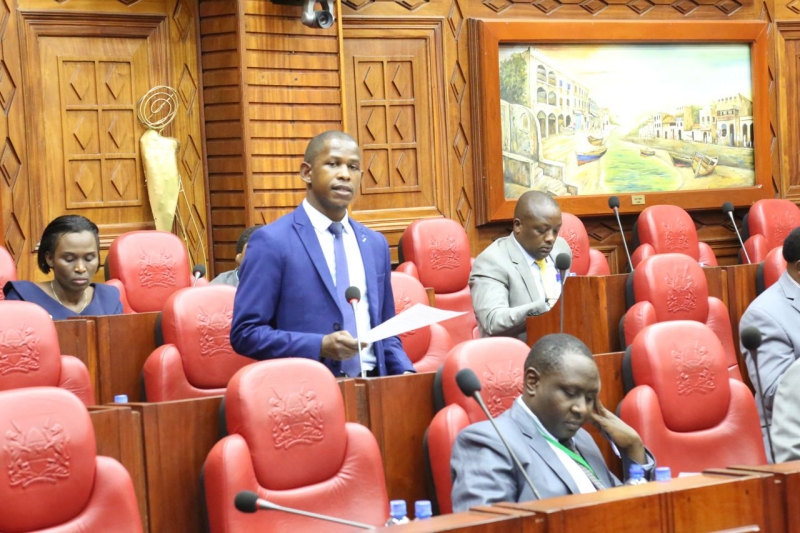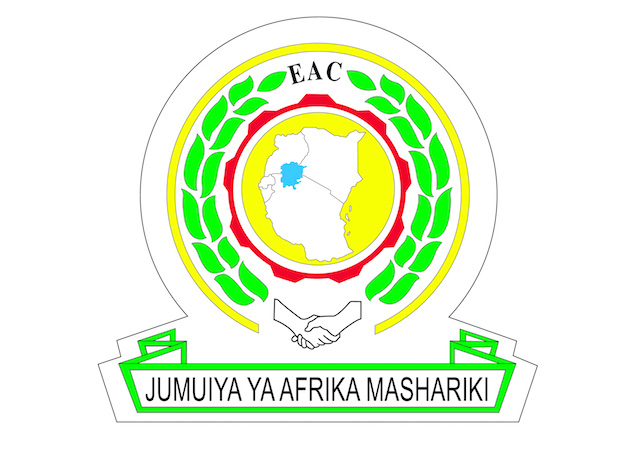
Posted in Press Release
East African Legislative Assembly, Arusha, Tanzania: 12 June, 2018: The EALA Sittings have ended in Nairobi. Prior to adjournment, a Resolution moved by Hon Jean Claude Barimuyabo urging Partner States to ensure elections of youth to EALA and National Assemblies was withdrawn. This followed debate where majority of Members urged the mover of the Resolution to synchronise the same with the pending bill on Youth (EAC Youth Council Bill, 2017) currently before the House.
Hon Barimuyabo in his resolution had urged the EAC Partner States to allocate special slots for the youth in the election of Members of National Assemblies. The Member was concerned that neither the Treaty for the Establishment of the EAC nor the East African Legislative Assembly Election Act, 2011 in their current form provide for special slots for the youth to ensure that they are elected to the regional Assembly;
“The youth constitute 63% of the total population of the East African Community and as such it is important to have the representation of this sizeable percentage of the population at the East African Legislative Assembly and National Assemblies”, Hon Barimuyabo said.
However, during debate Hon Dr Abdallah Makame rallied for all special interest groups to be included in a Bill for more inclusivity while Hon Paul Musamali said the resolution could go a long way in enriching the pending Bill before the House.
Hon. Dr Maghembe remarked the Treaty under Article 51 provides for how Members and other special groups are elected to the House and suggested the need in future to increase number of slots in order to allow all the special groups to be represented.
Hon Mary Mugyenyi termed youth as very capable and urged them to compete for the available slots. Others who contributed to the debate were Hon Gideon Gatpan, Hon Sophie Nsavyimana, Hon Fancy Nkuhi, Hon Dr Gabriel Alaak and Hon Mathias Kasamba.
The EAC Youth Council Bill, 2017 moved by Hon Susan Nakawuki, is premised on Article 120 of the EAC Treaty and seeks to implement the EAC Youth Policy 2014 which is an integral part of the 4th EAC Development Strategy 2011/2012 – 2015/2016. The Bill recognises that Partner States have diverse laws and policies regarding the youth in their territories. The Bill which sailed through the First Reading of the Assembly in May 2017 attempts to uniformalise the laws and regulations pertaining to youth in the Community.
Meanwhile, the Assembly has adjourned and is proceeding on recess. All Committees shall however continue with planning of their annual plans for the Financial Year 2018/2019 until Thursday this week. The activities are expected to be the basis for the Planning Meeting for the next Financial Year at a date to be communicated.
- ENDS -
For more information, please contact:
Bobi Odiko
Senior Public Relations Officer
East African Legislative Assembly
Arusha, Tanzania
Tel: +255-27-2508240
Fax: +255-27-2503103
Cell: +255-787-870945, +254-733-718036
Email: BOdiko [at] eachq.org
Web: www.eala.org
About the East African Legislative Assembly:
The East African Legislative Assembly (EALA) is the Legislative Organ of the Community and has a cardinal function to further EAC objectives, through its Legislative, Representative and Oversight mandate. It was established under Article 9 of the Treaty for the Establishment of the East African Community.

Posted in Press Release
East African Community Headquarters, Arusha, Tanzania, 11th June 2018:
A four-day High Level Retreat themed Reflections on Experiences, Best Practices and Lessons Learned in Mediation, Negotiation and Dialogue Processes organized by the East African Community Secretariat kicks off from 12th to 15th June 2018, in Mombasa, Kenya.
The Retreat is part of EAC’s initiative to encourage a culture of reflective practice in mediation, negotiation and dialogue for resolving conflicts and restoration of sustainable peace and stability in the region.
Commenting ahead of the Retreat, the EAC Deputy Secretary General in charge of Political Federation, Mr. Charles Njoroge said “convening of the Retreat falls in line with the goal of strengthening the capacity of EAC Partner States officials and the Secretariat staff in mediation and preventive diplomacy, and is therefore a key component of the bloc's strategy to advance its peace and security agenda”.
He added that “Through this Retreat, it is envisaged that the EAC will contribute to a corpus of effectively qualified and well-informed Partner States’ and Secretariat officials who demonstrably understand mediation, negotiation and dialogue processes, and learn from past and current lessons to strengthen EAC's interventions.
Participants expected at the capacity building retreat include officials and Experts involved in mediation, negotiation and facilitation processes and researchers within the region, EAC Partner States delegates previously trained in mediation including Eminent Persons; representatives from the Civil Society, Private Sector, Inter-Religious Council, EAC Youth Ambassadors; and Representatives from the UN, AU/RECs and EU involved in mediation, negotiation, dialogue, conflict resolution and peace building initiatives, among others.
Notes to Editors
The East African Community (EAC) seeks to promote sustainable economic growth and socio-economic development through integration, good governance and durable peace and security. Its vision is one of a common feature in a regional community that will ensure economic well-being, improvement of the standards of living and quality of life, freedom and social justice and peace and security for the peoples of East Africa.
Almost two decades since the coming into force of the Treaty for the Establishment of the East African Community (EAC), significant achievements have been made toward the realization of the goal of regional integration and the ultimate objective of political federation. Among others, the Establishment of the Customs Union, the Common Market, the signature of the Protocol for the Establishment of the Monetary Union, the adoption of a Strategy on Regional Peace and Security, the signature of a Protocol on Peace and Security, the adoption of a Counter-terrorism Strategy, the adoption of a Conflict Prevention Management and Resolution and an Early Warning Mechanisms, as well as the efforts leading to the establishment of EAC Political Federation are some of the key achievements.
However, progress in the region towards these objectives continues to be inhibited by persistent peace and security challenges, most of which exhibit a significant transnational dimension. These complex threats include violent and radical extremism, terrorism, identity and resource-based violent conflicts, governance challenges, intra and inter-state disputes, proliferation of rebel groups/ negative forces, trans-national and cross-border crimes, genocidal ideologies, human and drugs trafficking and poaching, among others.
These and many other challenges affecting the EAC region impinge on peace and security which according to Article 124 of the EAC Treaty is “a prerequisite to the achievement of the objectives of the Community”. They also stand in the way to regional social-economic and political progress. To this effect, the Revised EAC Strategy on Regional Peace and Security under Goal 14 “Operationalise the East African Community Conflict Prevention, Management and Resolution Mechanism” calls for the development of capacities to anticipate, mediate, negotiate and mitigate disputes and conflicts.
-ENDS-
For more information, please contact:
Mr Owora Richard Othieno
Head, Corporate Communications and Public Affairs Department
EAC Secretariat
Arusha, Tanzania
Tel: +255 784 835021
Email: OOthieno [at] eachq.org
About the East African Community Secretariat:
The East African Community (EAC) is a regional intergovernmental organisation of five Partner States, comprising Burundi, Kenya, Rwanda, Tanzania and Uganda, with its headquarters in Arusha, Tanzania.
The EAC Secretariat is ISO 9001:2008 Certified


